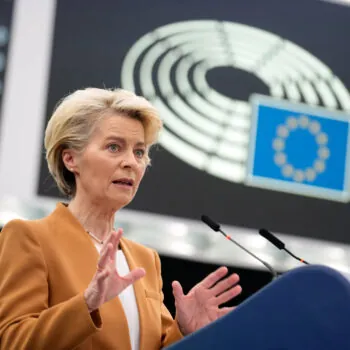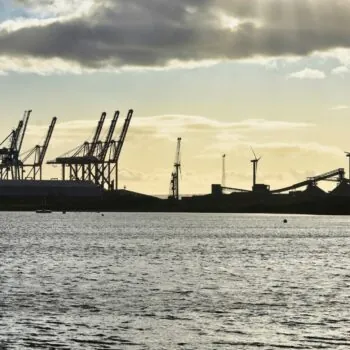European leaders will discuss climate change during the European Council of 21st-22nd March 2019. Heads of state or government will debate the transition to a climate-neutral Europe by 2050. The Council Presidencies need political guidance to accelerate and help focus the negotiation.
Expectations
European leaders will focus on the priorities of the next European Commission, climate ambition and the future of EU-China relations. The European Council will in particular “provide guidance on the overall direction and political priorities” for moving to a climate-neutral Europe, as proposed by the European Commission in its strategic long-term vision in November 2018. Thus far European leaders have tasked ministers with analysing the Commission’s vision and be ready to submit a long-term strategy “by 2020, in line with the Paris Agreement”. But progress has been slow. While technically sound, this timeline and mandate is vague at best and is not conducive to an agreement.
Leaders must clarify what must be agreed by when to allow the Romanian and Finnish Presidencies of the Council to steer the discussion towards a deal that goes beyond the lowest common denominator.
Clarify the outcome. The current slow pace can be blamed on the fact the negotiations lack a clear objective. The Commission outlined different scenarios associated with different ambition levels. The political discussion has quickly moved on though. Ministers have already agreed that climate neutrality is an obvious choice, but the deadline remains a contentious issue. However, the current mandate is indeed too vague about the outcome of the negotiations: should ministers and heads of state and government agree on a target? a pathway? a set of policies priorities?
Define the landing zone. The current negotiation is also lacking traction because of blurry boundaries. Ministers have already highlighted in various Council formations policy themes that are important for their country (such as just transition, research and development, financial support). In the absence of a clear mandate, the Romanian Presidency has so far not been able to capture these themes and deepen the discussion. Leaders should task the Council Presidencies with going beyond consulting each Council formation and explore the potential shape of a deal including critical enabling conditions for moving to climate neutrality.
Agree a timeline in sync with international expectations. The European Commission is pushing for the endorsement of climate neutrality by European leaders at the Sibiu Summit in May or at the European Council in October 2019. While there is no set deadline, one could see advantages in a two-stage endorsement: a partial agreement in May, followed by a full deal in October. In any event leaders must plan around the international timeline. The UN Secretary-General Summit on climate ambition in September is a widely anticipated political moment, when world leaders are expected to demonstrate political will and transformative action to deliver on Paris Agreement goals. The EU must show commitment to climate neutrality and a revision of its 2030 pledge (Nationally Determined Contribution) in order to be in a position to call on others to increase ambition.
Factors to watch
Statements. Climate is a divisive topic among European countries. Discussions so far have been constructive, and have already led to an agreement on climate neutrality by the Foreign Affairs Ministers (but without a date). However, this is the first high-level public-facing moment that can potentially catch the eye of national press and hence push leaders to take a more entrenched position.
Conclusions. European Councils’ conclusions are carefully drafted, weighted and negotiated documents. Nothing is left to chance. Besides a refined mandate, the statement could include language introduced to derail or at least delay the process. In particular, “national specificities” is often an open-door to narrow lowest-common-denominator policy.
Context
Commission’s vision. Leaders requested in Spring 2018 the European Commission to assess whether European countries could make deeper emission cuts by 2050. The Commission’s assessment presented in November 2018 was crystal clear: it is feasible and very much in the European Union’s interest to reach “climate neutrality” by 2050. The Commission’s services coupled positive numbers with a powerful narrative about modernising the economy. Climate neutrality is a necessary contribution to protecting Europeans from the most dangerous impacts of climate change. But it will also be positive for the economy and Europeans’ quality of life.
Leaders’ meetings. 2019 is a busy year for Europe’s heads of state and government. Brexit never ceases to make it onto their agenda. The European elections will also trigger a change of the European leadership and policy priorities, based on the European Council’s inputs. These discussions tend to monopolise political bandwidth and are usually hard-fought battles. They are also expected to negotiate the next European budget for 2021-27, which is always a complex process. It is unclear how much climate will be able to feature but it has every reason to be on the agenda at every summit between now and the end of the year.
Political pressure. The UN Secretary General called for updated 2030 climate contributions by September on the back of the global climate strike on 15th March that gathered more than a million participants worldwide. In Europe, the European Parliament adopted on 14th March a non-binding resolution endorsing climate neutrality and supporting an increase of the EU’s nationally determined contribution to 55% greenhouse gas cuts by 2030.
Next steps. The current Romanian and the upcoming Finnish Presidencies of the Council will again put the strategy on the agenda of ministers (transport, energy, agriculture, environment, employment) to ensure a wide buy-in. The Presidencies should be encouraged to take a hands-on approach by capturing the different elements highlighted by ministers, suggest common ground across the different formations, and propose a package of elements to be agreed upon to be tested in the most relevant Council formation. They should then hand over to the Presidency of the European Council for the final negotiation.
Most recent relevant documents
- European Council, Annotated draft agenda of 21st-22nd March meeting (February 2019)
- European Parliament, Resolution on climate change – a European strategic long-term vision (March 2019)
- European Climate Foundation, Towards fossil-free energy in 2050 (March 2019)
- Coalition for Higher-Ambition, Open letter ahead of European Council (March 2019)



